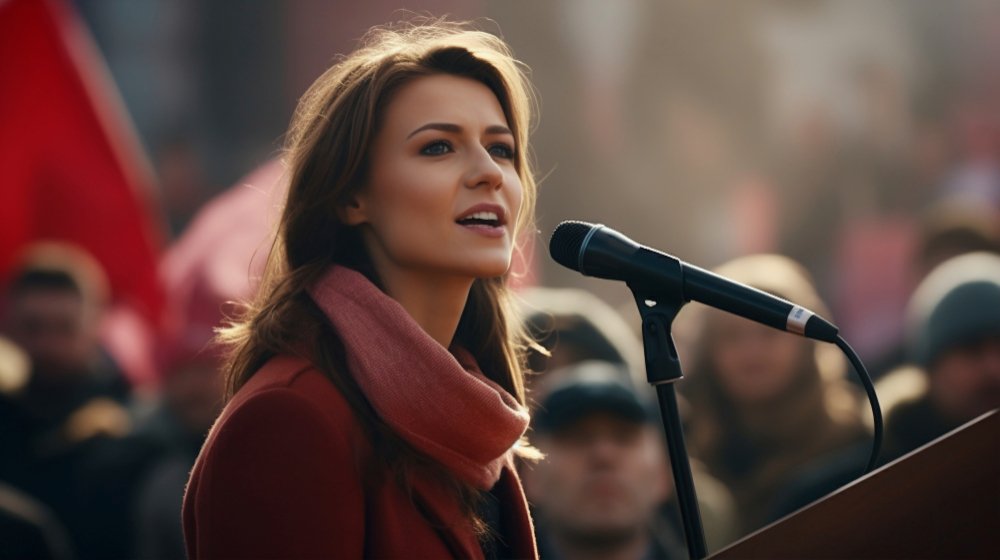Diversity Drives Democracy: Women in Politics
Yashaswini Repaka
June 2024
The current state of women in politics is an important issue that continues to evolve through generations. While we have come a long way from gaining the right to vote, much must be done to achieve gender equality in democracy. The number of women holding political office has increased in many countries over time. However, significant disparities regarding access to power and decision-making roles are still barricades in the political careers of many aspiring women.
In addition, representing women in politics is important for many reasons. Women’s unique perspectives and experiences can be considered when forming policies and making decisions. This can lead to more equitable and inclusive governance that better reflects the needs and interests of the entire population. Having more women in government can inspire future generations of women leaders, encouraging greater diversity and gender equality in leadership positions.

History and Women
Throughout history, many prominent figures and movements have fought for gender equality in democracy. For example, The Women’s Suffrage movement was influenced by the publication of the Declaration of Independence: “Although the Declaration of Independence specifies that ‘all men are created equal,’ its publication sowed the seeds the seeds for the women’s suffrage movement in the United States”[4]. Lucretia Mott and Elizabeth Cady Stanton, denied participation in an 1840 conference in London due to being female, were inspired to work together by this rebuff.
In 1916, Jeanette Rankin was the first woman elected to Congress, representing Montana. Rankin “helped destroy negative public attitudes about women as members of Congress”[1]. Agreeing with a colleague’s famous comment, “I’m no lady. I’m a member of Congress,” Rankin displayed tenacity and individuality, aiding her in improving societal views on the political standards of women.
Barriers to Entry
According to the Pew Research Center, “More than four-in-ten point to gender discrimination (47%), women getting less support from party leaders (47%), many Americans not being ready
to elect a woman to higher office (46%), and family responsibilities (44%) as major obstacles for women in politics” [2]. The population of women who participate in the political field is low due to how society is conservative about a woman’s place because more obstacles than a lack of interest prevent many from advancing in the field.
Throughout history, many have adjusted to the societal norms that separate the two genders. Centuries ago, women were given the title of homemaker, meaning they were expected to take care of household chores and raise children. Women were also required to display a distinct elegance, often interpreted as timid or weak for many generations. It was in the 20th century that there came big changes in societal expectations for women. However, there are still some glass ceilings we as a generation are still fighting to overcome. Politics has been inversely characterized as rough and argumentative, and those who continue to hold conservative beliefs maintain women’s involvement as inappropriate and even unnatural.
Women in politics face numerous societal, cultural, and institutional barriers. For example, the lack of support and encouragement for women to pursue political careers is scarily low. According to the Pew Research Center, “About a third (34%) say women aren’t encouraged to be leaders from an early age and 23% say not as many women are interested in holding higher office”[2]. In addition, some discriminatory laws and policies disadvantage women in the political arena. In only 67 out of 173 countries, there are laws in place that are against gender discrimination in hiring practices[6], which probably includes the political field. These barriers contribute to the persistent gender gap in political representation and influence, and addressing them is crucial for achieving gender equality in politics.
Ultimately, embracing diversity in political leadership leads to more inclusive policies and better reflects the needs of society as a whole. Through politics, women can feel empowered and gain further support for gender equality. Actively working towards breaking down barriers that prevent women from fully participating in political decision-making, and providing insight and advice on the political field to aspiring woman politicians, can aid in creating a more equitable and representative political landscape.
References:
[1] Jeannette Rankin. U.S. Senate: Jeannette Rankin. (2023, August 7). https://www.senate.gov/about/origins-foundations/electing-appointing-senators/jeannette-rankin senate-campaign.htm#:~:text=No%20history%20of%20American%20representative,singular%2 0event%20occurred%20in%201916.
[2]Pew Research Center. (2023, September 25). More than half of Americans point to women having to do more to prove themselves as a major obstacle for women seeking high political office. Pew Research Center. https://www.pewresearch.org/social-trends/2023/09/27/views-of-obstacles-for-women-seeking-hi gh-political-office/st_2023-09-27_women-leaders-politics_2-01-png/
[3]U.S. EMBASSY IN GEORGIA. (n.d.). https://ge.usembassy.gov/women-in-politics-a-timeline
[4]Voting rights for women: The right to vote: Elections: Classroom materials at the Library of Congress: Library of Congress. The Library of Congress. (n.d.). https://www.loc.gov/classroom-materials/elections/right-to-vote/voting-rights-for-women/
[5]Why women? – representwomen. (n.d.). https://www.representwomen.org/why_women
[6]Women, U. (n.d.). Women in the changing world of work – Facts you should know. https://interactive.unwomen.org/multimedia/infographic/changingworldofwork/en/index.html





